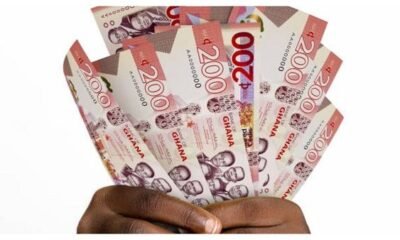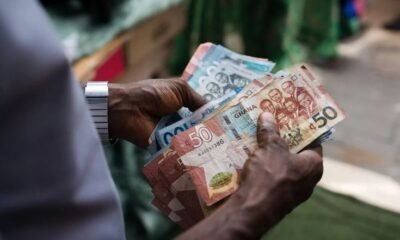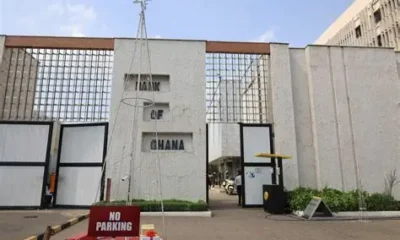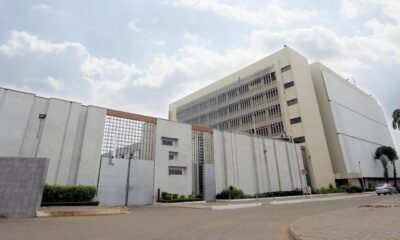Published
8 months agoon
By
Adubianews
Earlier today, the Bank of Ghana (BoG) introduced a set of sweeping regulatory measures aimed at improving transparency, protecting consumers, and strengthening financial stability across the country’s banking sector. The announcement was made during a post-Monetary Policy Committee (MPC) briefing at the central bank’s headquarters in Accra.
1. Interest Charges on Digital Platforms
Effective from July 2025, banks and digital lenders will be required to clearly disclose interest rates and all associated fees on loans offered through mobile and online platforms. This policy targets hidden charges that have become common in digital lending, ensuring borrowers understand exactly what they’re signing up for.
2. Standardized Forex Pricing
The BoG is also moving to regulate pricing within the foreign exchange market. New measures will set clearer rules for how banks price forex transactions, a move intended to curb excessive charges and promote fairness across the financial ecosystem.
3. Non-Performing Loans (NPL) Cap
Starting in 2026, banks will be required to maintain non-performing loan ratios below 10%. To support credit risk transparency, financial institutions must also publish lists of blacklisted or high-risk borrowers in their annual financial reports.
4. Recapitalization Requirements
To reinforce the resilience of Ghana’s banking sector, BoG is tightening capital requirements for commercial banks. Institutions that fail to meet the minimum capital threshold will face escalating penalties and possible regulatory intervention. This effort is designed to ensure banks can absorb shocks and continue lending to support economic activity.
These new directives will be rolled out between July 2025 and 2026. BoG Governor Dr. Johnson Asiama emphasized that the changes are part of the central bank’s broader effort to build a more accountable, transparent, and robust financial system.


Bank of Ghana Urges Ghanaians to Respect the Cedi as a Symbol of National Dignity


Cedi Turns 60: Bank of Ghana Marks Milestone with National Celebration


BoG Assures Businesses of Dollar Availability, Cuts Policy Rate


BoG Cracks Down on Huge Dollar Withdrawals to Protect Ghana’s Economy


BoG to Ban Wilful Loan Defaulters from Credit Access for Five Years


BoG Postpones Cedi@60 Launch Following Fatal Helicopter Crash


BoG Quells Fears of Dollar Shortage, Reaffirms Commitment to Forex Stability


BoG Governor Attributes Cedi Stability to Policy Reforms and Investor Confidence


Ghana’s $1.4 Billion FX Sale in Q1 2025 Raises IMF Concerns

























